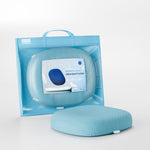5 Fascinating Questions About Dreaming

We've all experienced those extraordinary dreams—waking at the most captivating moment and attempting to return to sleep hoping they'll continue, dreams that feel like they've lasted days or ended at light speed, fantastic and even bombastic nocturnal adventures. There are secrets about your dreams that even Swiss scientists don't fully understand. If you promise not to reveal these mysteries to anyone, you may continue reading.
1. Why Do We Dream?
Scientists remain divided in their explanations of why we dream. While no definitive answer has been reached, several theories address the purpose of dreaming within their respective frameworks. According to one theory, our dreams are shaped by the accumulation of our thoughts—whatever we frequently contemplate manifests in our dreams. Another theory suggests that dreams may serve as a defense mechanism, allowing us to experience situations we haven't yet encountered in real life through our subconscious. Hopefully, those moments when we feel like we're falling from a great height and suddenly awaken aren't included in this theory. Finally, another explanation proposes that dreams are moments when we organize information collected over days, support memory retention, and allow the brain to solve problems and make decisions. Escaping from the light of science to provide an answer: we might call dreams those surreal situations that become breakfast conversation topics—fantastical circumstances that we sometimes wish were real.
2. Why Are Some Dreams So Strange?
There exist dreams that operate independently of time and space. Sometimes the pioneers of this independent movement consist of people you know intimately. It's as if all your friends who don't know each other have suddenly become companions. Your front door opens onto a completely unfamiliar street; you think you're at school only to find yourself in the middle of the ocean. Running becomes impossible, and you certainly can't escape anyone by walking. These extended strange moments we experience in dreams relate to a part of our brain that's difficult to pronounce but sounds impressive when you do: the prefrontal cortex. This region, which remains inactive during dreaming periods, is associated with higher-order reasoning. When brain-level reasoning doesn't occur, our minds cannot clearly perceive rapidly changing locations, flights, escapes, and similar phenomena. Essentially, when dreams begin, our brain tells us: "Work hours are over, the prefrontal cortex has left the building."
3. Why Don't We Remember Every Dream?
Our sleep, which occurs as a complete experience, actually consists of two parts: REM sleep and non-REM sleep. What seems strange when referred to as REM is actually an abbreviation for the English term "rapid eye movement." When we observe movements under someone's eyelids while they sleep and wonder "are they pretending?" they're actually experiencing REM sleep at that moment—simply put, dream time. REM sleep occurs in 90-minute intervals, corresponding to the second half of the night and early morning hours. The dreams we remember with near-perfect clarity result from awakening during REM sleep. Another factor in remembering or forgetting dreams relates to their content. Nightmares, due to their traumatic nature and impact, remain in memory longer than ordinary dreams. Just as people tend not to forget negative situations in daily life, the tendency to remember dreams composed of negative moments is higher.
4. How Many Dreams Do We Have Per Night?
Dream frequency varies according to a person's age, health condition, medications used, and hours of sleep. However, the most significant factor creating difference is traumatic experiences. People who have experienced trauma dream more frequently than others because phenomena that establish permanent residence in the brain seek expression somewhere, which manifests through dreams. Under normal circumstances, based on REM sleep occurring every 90 minutes, we experience an average of 4 or 5 dreams per night. Considering the peculiarity of the dream realm, you could tour the world in just 4 dreams.
5. Do Visually Impaired People Dream?
Visually impaired individuals do dream, though perhaps somewhat differently from standard experiences. This difference relates to when the person's visual impairment began. Someone who lost their vision before age 5 cannot find visual correspondence in their dreams. They experience situations in their dreams that they frequently rely upon in daily life, such as scent, taste, and touch sensations. In cases of vision loss after age 7, dreams connected to the visual experiences acquired up to that age occur. However, images in these dreams, due to weakening visual memory, won't be long-lasting and will gradually give way to other senses. Ultimately, visual impairment cannot prevent living life like everyone else, nor can it prevent sweet dreams.
At FOAMSLEEP, we understand that quality sleep and meaningful dreams begin with proper rest. Our premium memory foam pillows and orthopedic support products are designed to optimize your sleep environment, ensuring you experience both restorative rest and vivid dream experiences.
For more information about our advanced sleep solutions, visit fomsleep.com.
Disclaimer: This information does not constitute medical advice. Please consult with a healthcare professional for proper diagnosis and treatment.




